Speaking Out for Black Lives
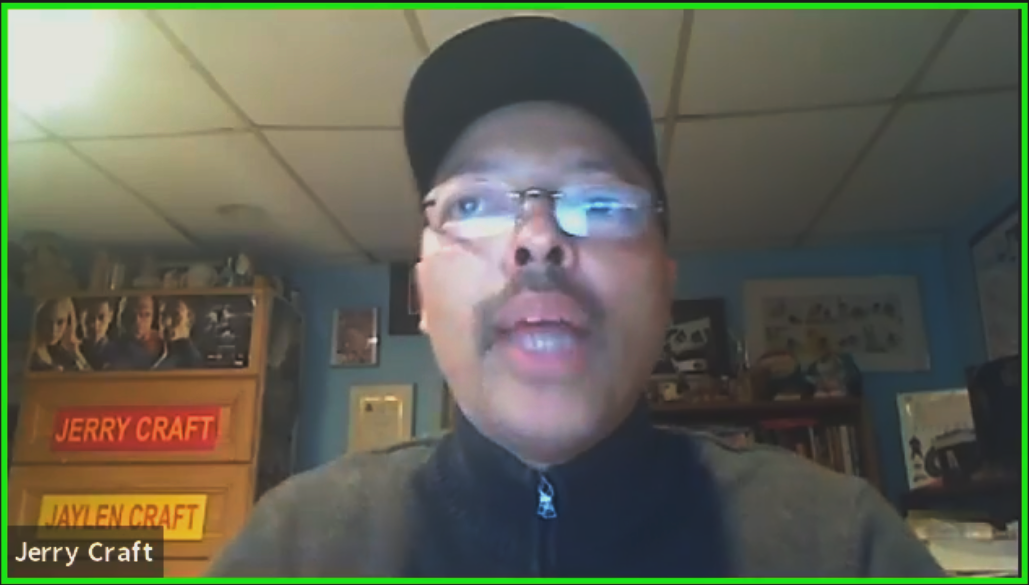

Amid the ongoing protests that began last week in response to the murder of George Floyd, the industry has seen an unprecedented surge in the sale of antiracist titles, and as lists of antiracist books have circulated online, so, too, have lists of Black-owned independent bookstores to support.
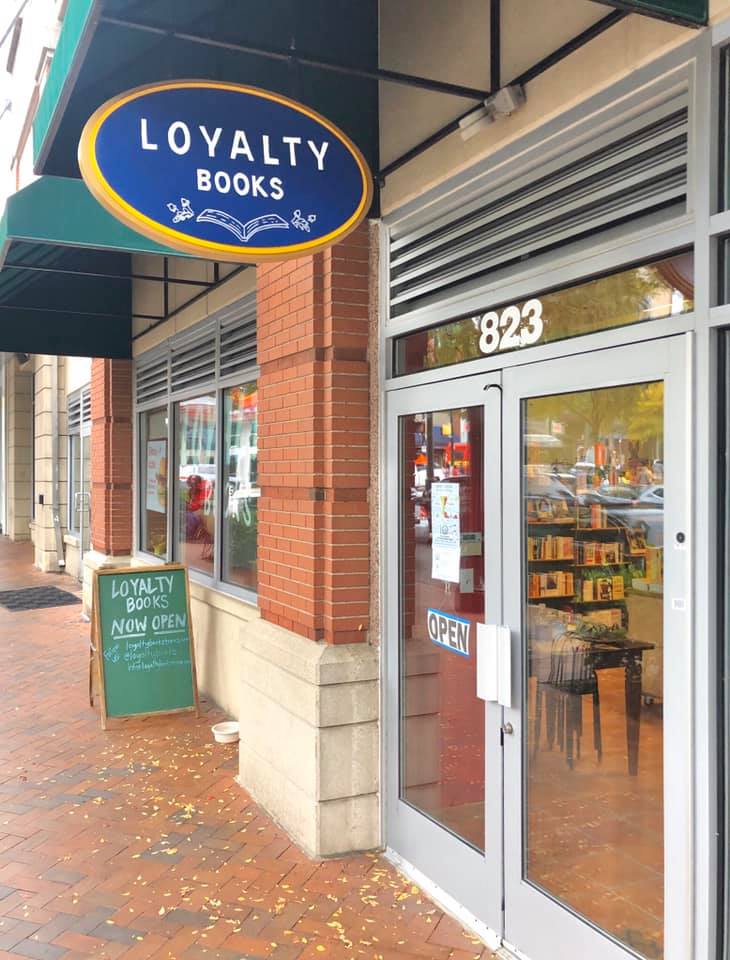 Over the past week, Loyalty Bookstores in Washington, D.C., and Silver Springs, Md., have seen roughly 10 times their weekly orders per day, reported founder Hannah Oliver Depp. Prior to this week, Depp had been working about 70-plus hours per week mostly by herself, but business has increased so much over the last several days that she's started to bring back staff and will continue to do so next week.
Over the past week, Loyalty Bookstores in Washington, D.C., and Silver Springs, Md., have seen roughly 10 times their weekly orders per day, reported founder Hannah Oliver Depp. Prior to this week, Depp had been working about 70-plus hours per week mostly by herself, but business has increased so much over the last several days that she's started to bring back staff and will continue to do so next week.
Returning staff members will help not only with processing orders but also sharing updates with customers. Depp noted that there is a strong possibility that many of these new, nationwide customers may be unused to buying books from indies and unfamiliar with how long it actually takes to process and receive these orders, even without many titles being on backorder and an ongoing pandemic slowing down shipping.
"Honestly, I am stunned," said Depp. So many times before there have been calls to support Black, women-owned businesses, which usually are met with only brief increases. This time, though, it's been growing for days. "I think the reason for this difference is that we're focused now on anti-racism, as opposed to centering whiteness and finding ways for people to worry about if they appear racist. The focus is on our actions, not our words."
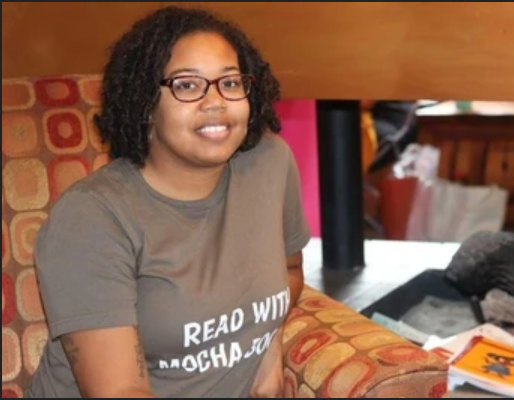 |
|
| Shionka McGlory | |
Shionka McGlory, owner of Mocha Books in Tulsa, Okla., said the experience has been bittersweet and "sort of a double-edged sword." On one hand, sales have skyrocketed and the store has never received so much attention on social media, which is something to be happy about as a small business owner. But, on the other hand, the circumstances responsible for this wave of support make it a frustrating and emotionally wrought experience.
"I don't think it should have gotten to this point," said McGlory. "It's a lot to process."
McGlory, who has a full-time job as an educator, founded Mocha Books as an online bookstore in 2017, with a focus on fostering a love of reading in children and highlighting books by and about people of color. While she's very passionate about it, she explained, it's always been something of a side project and she never relied that much on book sales. But that has completely changed since her store started appearing on those lists.
The volume of orders has been "crazy" and, aside from some family members helping out, she is doing all of the work herself. Processing orders has been an all-day affair, every day, and she's been to the post office several times this week already. She noted that orders are coming from all over the country, with the majority of them originating from out of state.
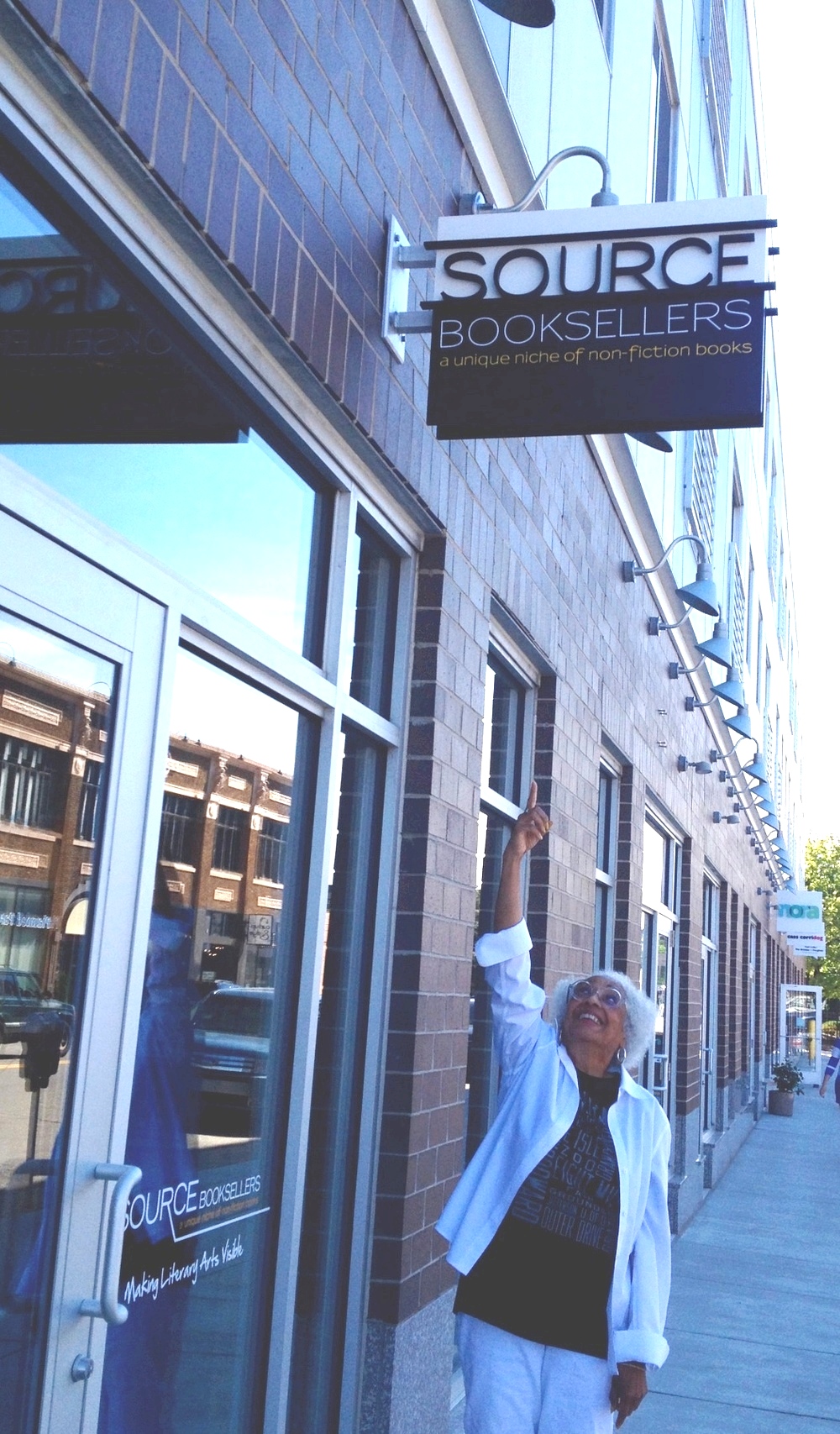 Janet Webster Jones and Alyson Jones Turner, the mother-daughter pair who own Source Booksellers in Detroit, Mich., said their store, which specializes in nonfiction, started to appear in Instagram stories about Black-owned bookstores several days ago. They were initially surprised, as they'd never been in the "social media loop" like that before, and then they quickly began getting phone calls and shifting to online sales.
Janet Webster Jones and Alyson Jones Turner, the mother-daughter pair who own Source Booksellers in Detroit, Mich., said their store, which specializes in nonfiction, started to appear in Instagram stories about Black-owned bookstores several days ago. They were initially surprised, as they'd never been in the "social media loop" like that before, and then they quickly began getting phone calls and shifting to online sales.
Popular titles have included books like White Fragility by Robin DiAngelo and So You Want to Talk About Race by Ijeoma Oluo, but as the more widely publicized titles have gone out of stock, Jones and Turner have sold plenty of books that were less prominently featured, such as The Color of Law by Richard Rothstein and Driving While Black by Gretchen Sorin. At this point, many of the store's antiracist books have sold out and are still in the reordering process.
"We're lucky that we always have these kinds of books," said Turner. "It's our niche and who we are. It's in our DNA."
Jones reported that orders have come from all over the country, including a book club in Bozeman, Mont., and a customer in Maine who saw Jones and her daughter on CSPAN's BookTV recently and wanted to support them.
Despite Michigan allowing retailers to reopen this week, Turner and Jones have not reopened their shop for browsing. After selling so many titles online, they need to get their inventory "under control," and as the store is only 900 square feet, they'll need to rearrange quite a bit to accommodate both processing orders and safe browsing. They have installed a sneeze shield at the register and are wearing masks and gloves.
"We want to be really cautious and slow about reopening," said Jones. "We don't want people feeling scared to come in."
Although they're trying to reopen slowly, Jones continued, customers are clamoring to start shopping there again and, with so much going on at the moment, to talk to her and her daughter. Amid all this support from around the country, she added, the bookstore's community "is still here and with us. Without them we wouldn't be here."
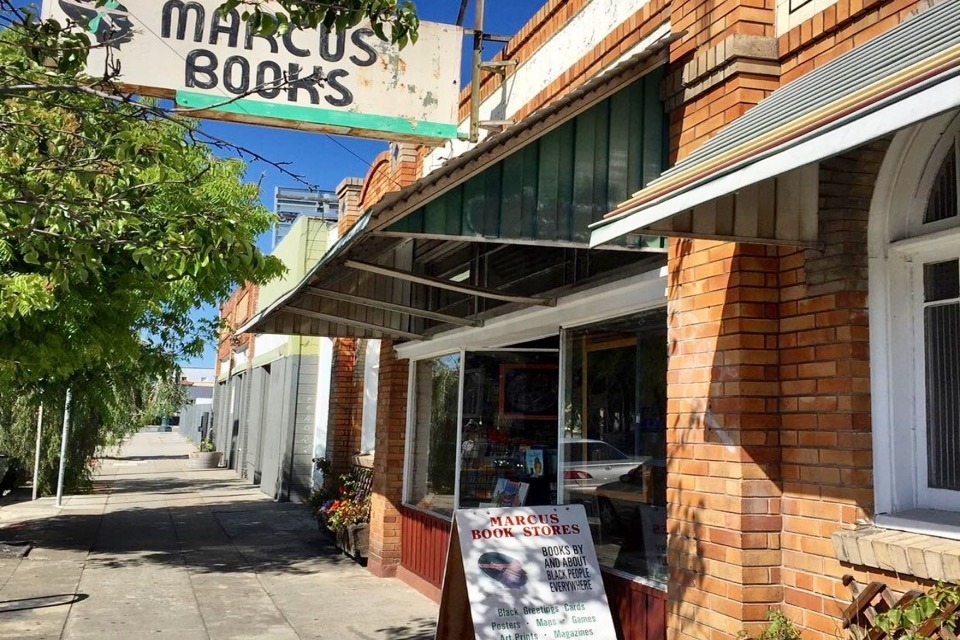 Marcus Books in Oakland, Calif., the oldest independent black bookstore in the country, has met and exceeded its $200,000 fundraising goal. The GoFundMe campaign was launched in April to help Marcus Books stay afloat so the store could reopen "with confidence and security once it is safe to do so." Founded in 1960, Marcus Books is celebrating its 60th anniversary this year, and is owned and operated by Karen Johnson, Blanche Richardson and Billy Richardson, children of founders Dr. Raye Richardson and Dr. Julian Richardson.
Marcus Books in Oakland, Calif., the oldest independent black bookstore in the country, has met and exceeded its $200,000 fundraising goal. The GoFundMe campaign was launched in April to help Marcus Books stay afloat so the store could reopen "with confidence and security once it is safe to do so." Founded in 1960, Marcus Books is celebrating its 60th anniversary this year, and is owned and operated by Karen Johnson, Blanche Richardson and Billy Richardson, children of founders Dr. Raye Richardson and Dr. Julian Richardson.
"It’s freeing us from robbing Peter to pay Paul," Blanche Richardson told the Chronicle, which noted that donations have skyrocketed as protests and demonstrations across the country demand justice for George Floyd. The store has also received national media attention during the Covid-19 pandemic.
"It’s overwhelming," Richardson added. "Because we are 60 years old, this is not our first movement, but this one feels a lot different. I'd say 70% of orders coming in from all over the country are from white people looking for books on how to deal with racism."
 Six Indian booksellers have launched Independent Bookshops Association of India, with the aim to bring independent bookstores across the country together, "forging partnerships within and outside the publishing industry, and advocating for rights," PrintWeek reported.
Six Indian booksellers have launched Independent Bookshops Association of India, with the aim to bring independent bookstores across the country together, "forging partnerships within and outside the publishing industry, and advocating for rights," PrintWeek reported.
IBAI's founders include Diviya Kapur of Literati Bookshop & Cafe, Goa; Raman Shresta of Rachna Books, Gangtok; Leonard and Queenie Fernandes of the Dogears Bookshop, Goa; Neha Tiwari and Vishal Pipraiya of Pagdandi Bookstore Cafe, Pune; Aman and Mayura Misra of Storyteller Bookstore, Kolkata; and Ahalya and Meethil Momaya of Trilogy Library & Bookstore, Mumbai.
"Earlier this year, when a few of us got together to discuss the need for our country's independent bookshops to come together and set up a united front, we were eager to get started immediately," said Fernandes. "We set up conference calls, e-mailed drafts of objectives and rules, and designed logos, but our plans to meet up and formalize the structure of the organization has gotten delayed, understandably, by the Covid-19 pandemic."
It was the pandemic, however, that showed the booksellers why there is a need to come together and pool their knowledge, voices and support for each other.
"During the lockdown, with our beloved bookshops closed, we have had more time to understand the range of concerns that affect independent bookshops, what our common needs are and how we can help each other," Fernandes added. "We have been assessing our readiness to deal with the new normal, sharing book recommendations with each other, and our best practices, so when we restart it is with renewed vigor and most importantly, with friends. We have already started helping each other out by fulfilling orders for each other."
The IBAI is now inviting the country's independently owned bookshops to join them "so we can combine our strengths and our love for what we do best, find ever-loving homes for the best books. Over the next few days, we hope that this call is responded to by our fellow booksellers and we hope that readers join us by supporting our venture and seek us out, via our membership directory, so that we can serve more readers."
Shresta told Scroll.in: "The associations abroad, especially in the west, are doing a great job as a collective, looking out for the welfare of the members. While the issues we face in India are so much more rudimentary, there is great inspiration to take from how they have functioned to make all sections of the publishing industry work more ethically and cohesively."
Melissa Fetter is pressing on with her plan to open Beacon Hill Books at 71 Charles St. in Boston despite significant challenges posed by the Covid-19 crisis, Beacon Hill Times reported.
"I'm still moving forward, even though this is a crazy moment to be embarking on a new enterprise," she said. "My instinct is it's going to work, and I'm counting on the support of the community to make it happen."
Fetter plans to renovate the first three floors of the 3,000-square-foot, four-story building into a retail space "with floor-to-ceiling bookcases, with the third floor devoted exclusively to children's books," Beacon Hill Times wrote, adding that the former Hungry I space will also be converted into a garden-level café.
| Future home of Beacon Hill Books | |
Her original goal was to be open this fall, having purchased the building last September and finalized plans for the new business in December. She knew renovating a building dating back to the 1850s would be challenging, and she could not have anticipated the Covid-19 pandemic.
"Since then, we've been making our way through the various bureaucratic levels of approval," she said. "In the interim while we're waiting for all the approvals, we're making emergency repairs to the building, including restoring an about-to-collapse chimney. Bricks on the front and back facades became separated from the building, so about 75% of them had to be removed and reattached.... We're putting in the elevator at great expense to make it a fully accessible building to all. All this is the preamble to building the bookshelves, building out the café and starting the bookstore. If I had to guess, we're probably a year out from the store opening."
Despite the setbacks she has encountered and still faces, such as how social distancing will ultimately factor into her business plan, Fetter remains committed to the idea of the bookstore becoming a gathering space and a community resource for the neighborhood.
"Bookstores are more important than ever given [the current health crisis and social turmoil]," she said. "Bookstores and books are places to understand different points of view, and to escape when we need to find some solace."
 Phil Davies, IndieCommerce director at the American Booksellers Association, offered some figures to better illustrate the unprecedented spike in sales that the platform has seen recently.
Phil Davies, IndieCommerce director at the American Booksellers Association, offered some figures to better illustrate the unprecedented spike in sales that the platform has seen recently.
Driven by customers purchasing antiracist titles, sales over the past month have exceeded all IndieCommerce sales for 2019, and "2019 was a good year," Davies said. In just the past seven days sales were 1,833% higher than the same seven-day period last year, and on Tuesday alone, more than 200,000 shoppers visited the platform. Remarked Davies: "We've never seen anything like this before."
---
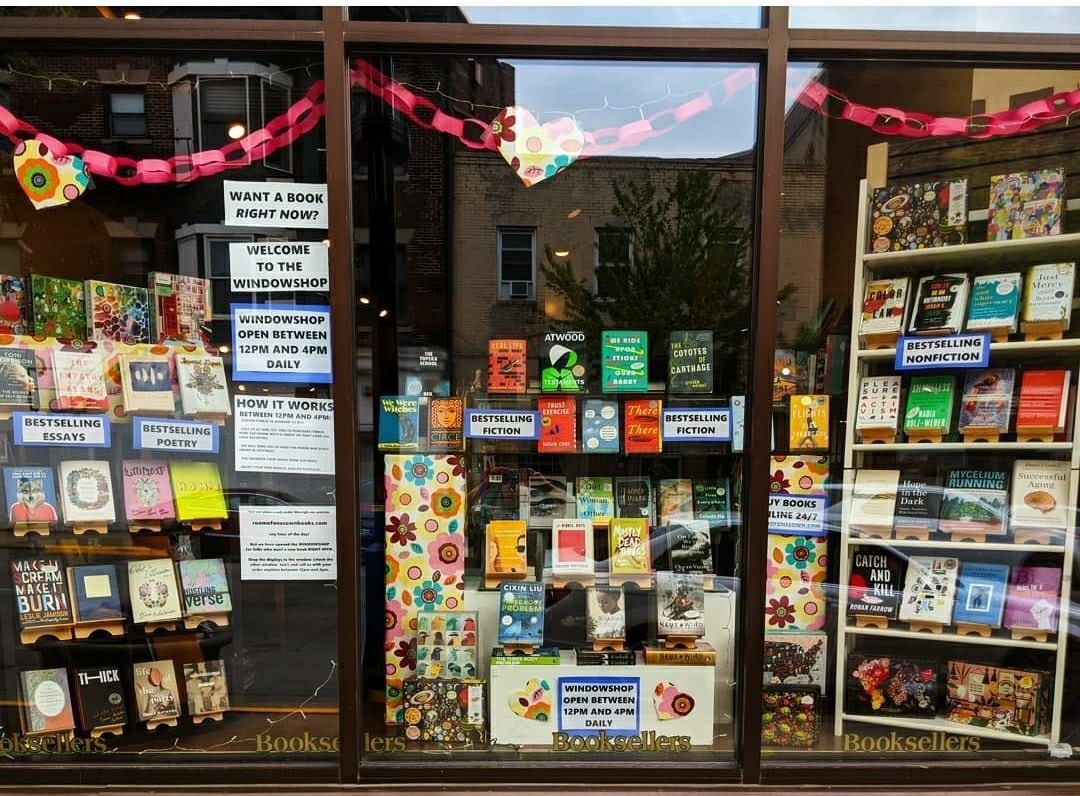 |
|
| A Room of One's Own's "windowshop." | |
In Madison, Wis., A Room of One's Own Bookstore has not reopened, though legally co-owners Gretchen Treu and Wes Lukes could reopen on a limited basis. Instead, they've elected to stick with shipping orders and doing limited pick-up in order to protect their staff and customers.
Treu and Lukes are keeping a staggered schedule and limiting staff in order to lower the risk of exposure, as well as give booksellers the flexibility to attend protests, do activism and "manage their Covid-reality lives." The store had a lot of success with its window displays for a couple of weeks until protests began and the windows had to be boarded up. Once they do decide to reopen for browsing, Treu and the team will require customers to wear masks and sanitize at the door, and are mulling other possibilities, such as browsing by appointment or having bookseller consultations outside the store.
When asked about her community's stance on social distancing and wearing masks, Treu said it's hard to tell. When the safer-at-home order was first lifted, plenty of people in public didn't wear masks and didn't stay separated, but more and more people seem to be taking precautions now. The Black Lives Matter protest organizers have been offering masks to protestors and encouraging people to wear their own. Given that there is a lot of overlap between the two audiences, Treu does not expect a ton of push-back when she does reopen.
A Room of One's Own currently has more orders than the staff is able to keep up with, and they are "flat out" of most antiracism titles. Treu and the team are starting to offer backorders on some of those titles and are also encouraging people to support Black-owned indies. Prior to the protests beginning last week, the store was selling a lot of staff picks and recommendations posted on its website, including The Book of Delights by Ross Gay, On Earth We're Briefly Gorgeous by Ocean Vuong and Untamed by Glennon Doyle. People have also bought plenty of activity books for kids and even boxed sets of entire middle-grade series, while jigsaw puzzles, crossword puzzles and the Room's own T-shirt and sweatshirt have done great.
On the subject of her staff, Treu said, "We are all tired but proud of the work we're doing," and she noted that there's "nothing like trying to do the right thing during two deadly pandemics--white supremacy and Covid-19--to demand that we all bring our best selves forward." Her booksellers have been flexible, gracious, committed and generous with their time, and she and Lukes have tried to do whatever they can for them.
---
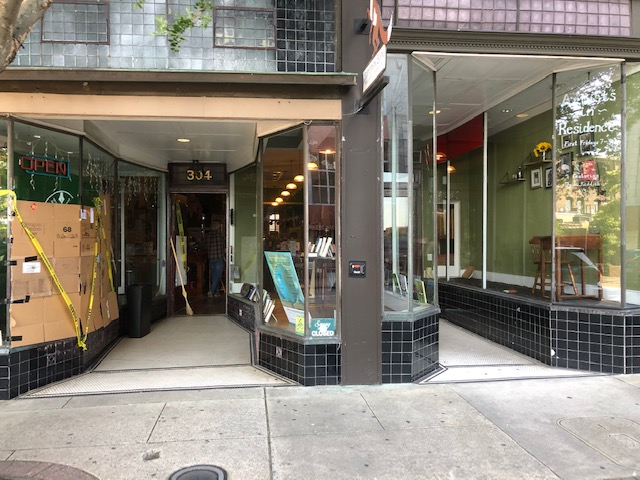 |
|
| Scuppernong suffered broken windows during this week's protests. | |
Earlier this week, Scuppernong Books in Greensboro, N.C., reopened for shopping by appointment. Appointments are scheduled in half-hour blocks, with no more than four shoppers per appointment slot. Masks are required and hand sanitizer is available in the store, and owner Brian Lampkin reported that "when people remember that we're still in the midst of a pandemic, we find 100% compliance with our social distancing/masking requirements."
People seem to enjoy the appointments, as they get the store largely to themselves and they get to talk with the Scuppernong team and express their range of concerns--for the store, for the city, for the country, for their children. Lampkin noted that being able to talk with someone has proven especially important right now. "Owning an independent bookstore can be quite the emotional ride."
Lampkin is slowly adding back staff, and he is in touch with everyone, but it will be a long time before the store is fully staffed again. The store is no longer open evenings or Sundays, and there is no longer an operational bar. "This will get more difficult as unemployment wanes and our staff is faced with a more immediate financial crisis," he said. "I hope that moment will coincide with an ability for us to increase staffing again."
Last weekend, a few of the store's windows were smashed during protests in Greensboro. No one was hurt and everything inside the store was intact. When he posted about it on the store's Facebook page, Lampkin wrote: "It's not the end of the world. We continue to support the protestors in our community and across the country, as we support our neighbors and our suffering local businesses. We really don't need donations; there are many legitimate non-profits you can donate to. If you want to support the store, please buy books. Books are good. Books help. We believe that." While the experience was "no fun for us," Lampkin added, it did give the community another opportunity to find ways to help the store.
On the subject of the "antiracism book explosion," Lampkin said he hopes it serves as a "springboard for real change." He and his team have put together a list of antiracism books by or about North Carolina writers, which is posted on the store's website.
Leona Trainer, who had a successful career in Canadian publishing and a great love for children's books, died April 30. She was 84. Trainer worked in sales and marketing positions at Penguin Books Canada, Bantam Canada and Scholastic Canada. She was president of Stoddart Kids, and v-p of Stoddart and General Publishing before joining the Transatlantic Agency. After leaving TLA, she formed Leona Trainer Literary Consultants and provided counsel to many authors.
Trainer served for many years as a director and chair of the Canadian Children's Book Centre, the Canadian Book Publisher's Council and the Canadian Association of Publisher's Educational Representatives.
In a tribute, the TLA called her "a valued colleague and much-loved friend who helped establish Transatlantic Agency as the premier literary agency in Canada handling children's and young adult literature.... Leona will be remembered as someone who was intensely loyal to those who earned her trust. She was warm and funny and loved her husband, Jerry, and their many children and grandchildren with a passion. She will be missed by Jerry, her extended family and many friends, including authors whose work she championed at the agency."
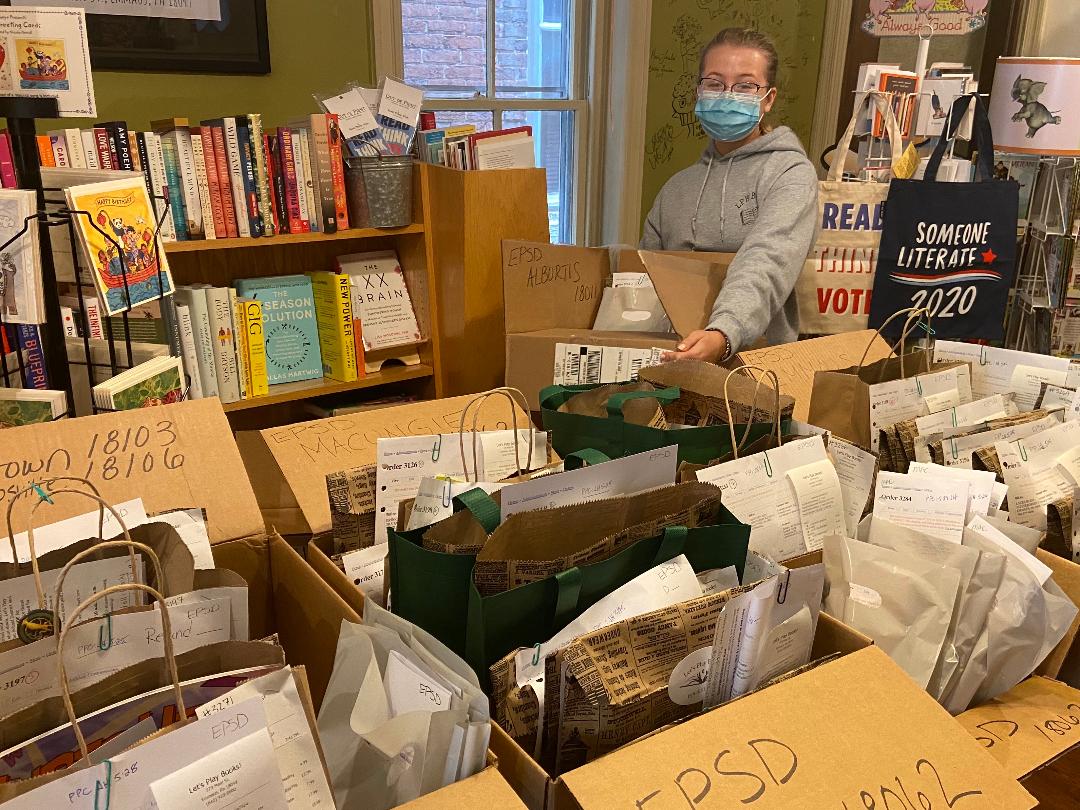
 Congratulations to Where the Sidewalk Ends Bookstore, Chatham, Mass., which celebrated its 15th anniversary last week. In a Facebook post, Caitlin Doggart-Bernal, co-owner with Joanne Doggart, shared the story of the "bookstore of my dreams," writing, "In this time of closure, on the precipice of a summer like no other, it's nice to reflect that 15 years ago today, May 28th, 2005, we opened our doors for business!...
Congratulations to Where the Sidewalk Ends Bookstore, Chatham, Mass., which celebrated its 15th anniversary last week. In a Facebook post, Caitlin Doggart-Bernal, co-owner with Joanne Doggart, shared the story of the "bookstore of my dreams," writing, "In this time of closure, on the precipice of a summer like no other, it's nice to reflect that 15 years ago today, May 28th, 2005, we opened our doors for business!...
"Our 15th birthday brings new anxieties: for a summer without large-scale author events (which enable us to continue employing our staff year-round), for a Chatham Main Street without the number of tourists we need to sustain the seasonal economy, for the health of our friends and family and neighbors, staff, colleagues, authors, and customers, for the necessity to think quickly and creatively of contingency plans for many situations simultaneously. This spring has been HARD on small businesses.
"We have spent 15 years cultivating the magic of browsing bookshelves for the unexpected surprise. We have staked our livelihoods on the surety that booklovers enjoy browsing REAL books in a charming space, for the chance to overhear another reader or bookseller lighting up describing how much 'they LOVED that book!' and that children thrive on the community formed by a Story Time and author and illustrator visits, that it is worth it to pay the publisher's list price for a book in a real setting that supports the magic of browsing paper books and chatting with real people. As a result, this March, we had to pivot quickly to online sales and social media and leap into the digital fray while also protecting the continuation of our beautiful post-and-beam barn-styled bookstore with its true divided light windows, and cupola, and split staircase with stained glass overlooking the mezzanine on one side. We dearly want Where the Sidewalk Ends Bookstore to weather this current economic and health crisis in order to exist in the surety of the brighter days ahead.
"And so we continue into Summer 2020 filled with hope!... While we weren't able to celebrate our 15th year today the way we would have wanted to, we are warmed by the support of a community of talented authors and engaged readers near and far that has kept us in business for this long. Thank you, from the bottom of my heart, for your continued support."
.jpg) Barnes & Noble has chosen The Vanishing Half by Brit Bennett (Riverhead) as its June national book club selection. The book will be the focus of a live event on B&N's Facebook page featuring Brit Bennett in conversation with Kiley Reid on Tuesday, July 7, at 7 p.m.
Barnes & Noble has chosen The Vanishing Half by Brit Bennett (Riverhead) as its June national book club selection. The book will be the focus of a live event on B&N's Facebook page featuring Brit Bennett in conversation with Kiley Reid on Tuesday, July 7, at 7 p.m.
"The Vanishing Half, an intricately crafted tale about identical twin sisters whose lives diverge when they leave their tiny hometown, is both moving and thought provoking," said Jackie De Leo, v-p, bookstore. "Brit Bennett weaves an incredible, indelible story of identity, family, sisterhood, and home that we are sure our readers will enjoy discussing."
"As a young girl, I spent so many Saturday mornings lost in the Barnes & Noble shelves, so I couldn't be more honored to be chosen as the June Book Club Pick. I hope everyone at the Barnes & Noble Book Club enjoys The Vanishing Half," said Brit Bennett.
 Her Perfect Life by Rebecca Taylor (Sourcebooks Landmark).
Her Perfect Life by Rebecca Taylor (Sourcebooks Landmark).
Today:
Fresh Air: Eric Foner, author of The Second Founding: How the Civil War and Reconstruction Remade the Constitution (Norton, $26.95, 9780393652574).
Tomorrow:
CBS This Morning repeat: Bryant Terry, author of Vegetable Kingdom: The Abundant World of Vegan Recipes (Ten Speed Press, $30, 9780399581045).
The Booker Prize Foundation has postponed the announcement of this year's International Booker Prize winner, originally scheduled for May 19, until August 26 to allow for the six shortlisted titles to be distributed and promoted more widely.
The International Booker Prize will launch a promotion of the shortlist during the week that bookshops are permitted to reopen in England, beginning on June 15. The promotion will begin with a series of films about the shortlisted books, featuring the authors and translators alongside readings from actors including Natalie Haynes, Toby Jones and Elizabeth McGovern.
"With bookshops up and down the country reopening--a vital part of the U.K.'s cultural bounce back--what better moment to celebrate our wonderful shortlist afresh?" said Ted Hodgkinson, chair of the judges. "These are books deserving of an extended time in the spotlight, which reveal greater depths with each rereading. As my fellow judges and I return to them ahead of our final meeting in August, now is the perfect moment to read along with us, and place an order with your local bookshop."
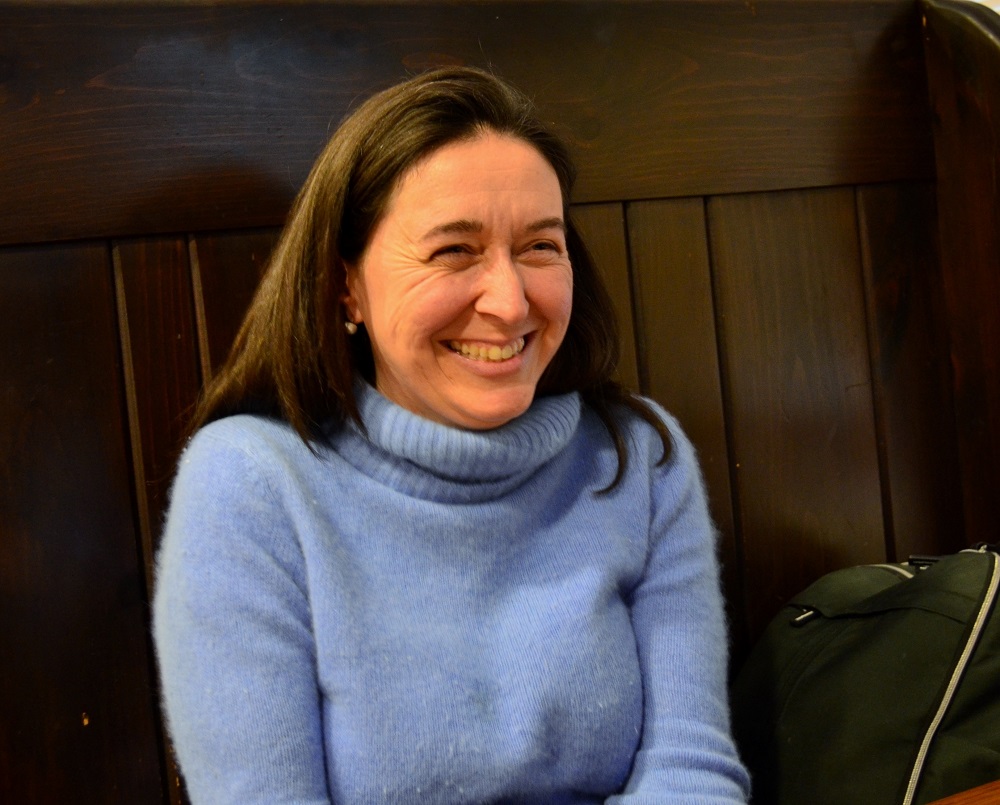 |
|
| photo: Seung-Eun Lee | |
Zena Hitz is a tutor in the great books program at St. John's College in Annapolis, Md., where she also lives. She has a Ph.D. in ancient philosophy from Princeton University and studies and teaches across the liberal arts. Lost in Thought: The Hidden Pleasures of an Intellectual Life (Princeton University Press, May 26, 2020) is her first book.
On your nightstand now:
My nightstand is a mess! I'm always reading too many things at once. Right now, Francis Su's Mathematics for Human Flourishing is on the top of the stack. When I started out writing, I feared that no one would understand my point of view. But in the end my experience has been opposite: there are so many kindred spirits and fellow travelers out there. Su understands that learning is for everyone, and that it makes your life better, and that's why it matters. It's a beautiful and clear book, with fun mathematical problems. I'm also always reading little bits of the Revelations of Julian of Norwich to get my mind out of the world and onto the fundamentals before I go to sleep.
Favorite book when you were a child:
As a child, reading was my escape, and I read books in piles rather than one by one. But I was definitely preoccupied with Greek mythology, and one of the favorites was D'Aulaires' Book of Greek Myths. I think I always loved stories that seemed to reach back and reflect on the fundamentals of things. As a teenager I developed a taste for irony, and for that reason Mark Twain's The Adventures of Huckleberry Finn was my favorite for many years.
Your top five authors:
In philosophy, Plato and Augustine, because they love the search more than the endpoint. For me, it's always been about getting lost in something, and finding the edge of my thinking where things stop making sense. In literature, Herman Melville and Flannery O'Connor are at the top; they both make the ordinary so strange and luminous. I've also always loved writers who challenge the reader fearlessly in matters of politics or social life: Malcolm X, for sure, or Andrea Dworkin, or, in a very different way, Anthony Trollope.
Book you've faked reading:
When I was in college, my best friend and I spent the whole afternoon talking when we should have been preparing for our Adam Smith seminar. We knew "the invisible hand" was important, so once we realized our situation, we found the passage and went off to class. Unfortunately, we were in class together, and when the invisible hand came up, we both said the page number in unison. We both collapsed in laughter and shame. That kept us quiet for the rest of the evening.
 Book you're an evangelist for:
Book you're an evangelist for:
I promote Elena Ferrante's Neapolitan Novels whenever I can. They're widely read, but I think they should be even more widely read! I teach in a great books program, so contemporary literature often feels like a letdown to me--but these novels are so rich and so deep, so challenging and fascinating, I won't rest until everyone has at least tried to read them. I don't know that I've ever read anything else that treats the relations between men and women so honestly, without softening any of the real difficulties.
Book you've bought for the cover:
I'm a sucker for any book that is little and cute and well-designed. I also have a taste for novelty. Probably The Penguin Book of Sick Verse is my best find, along those lines.
Book you hid from your parents:
My parents are very left-wing, and when I was in high school, I got interested in seeing the other side of things. I had my grandfather's copy of The Conscience of a Conservative by Barry Goldwater. I'm not sure I hid it from them, though; that would have taken the fun out of it!
Book that changed your life:
I read Sophocles, Oedipus the King, as a high-school student and then again as a college freshman. I think it was through that book that I understood that for some books, every line matters, every line is packed with some wisdom or insight waiting to be harvested. Once I saw that, I wanted to spend my life with books--there was nothing so exciting!
Favorite line from a book:
Julian of Norwich has "For the soul may do no more than to seek, to suffer, and to trust." I think about this all the time; it's such a simple account of human limitation and human possibility. I also like poetry; my favorite line might be Wordsworth: "The winds come to me from the fields of sleep." It's a line of compounded mystery: winds--which you can't see--blowing from the cemetery and the womb, where the people of the past and future lie hidden.
Five books you'll never part with:
I have a special love for the stories and poetry of the Bible. And no book has the power for me that the New Testament does. The Bible is in fact its own library--it collects books of various kinds: history, philosophy, literature, poetry--so if I've got that, you can give me a rotating shelf of four works of fiction and nonfiction and I'll be satisfied!
Book you most want to read again for the first time:
I've read the Jane Austen novels so many times that it can be hard for me to find fresh things in them. So, I'd say Emma or Pride and Prejudice, so that I can take the delight in the wit and the sudden plot twists as I used to.
The Sensitives: The Rise of Environmental Illness and the Search for America's Last Pure Place by Oliver Broudy (Simon & Schuster, $27 hardcover, 352p., 9781982128500, July 14, 2020)
 Brain fog, muscle aches, memory loss and a general malaise are a handful of the symptoms that might present in a person suffering from environmental illness. They precipitate from exposure to any number of chemicals common to modern society: pest sprays and fragrances, cleaners and inks. Yet the debilitating condition is hotly contested within the study of medicine, as freelance journalist Oliver Broudy uncovers in the thoroughly engaging investigation The Sensitives: The Rise of Environmental Illness and the Search for America's Last Pure Place.
Brain fog, muscle aches, memory loss and a general malaise are a handful of the symptoms that might present in a person suffering from environmental illness. They precipitate from exposure to any number of chemicals common to modern society: pest sprays and fragrances, cleaners and inks. Yet the debilitating condition is hotly contested within the study of medicine, as freelance journalist Oliver Broudy uncovers in the thoroughly engaging investigation The Sensitives: The Rise of Environmental Illness and the Search for America's Last Pure Place.
Broudy was already well into his research when one of his subjects, Brian Welsh, disappeared. An integral member of the EI community, or sensitives, Welsh had cultivated an online presence that rallied and bolstered those like him, who exist in a world skeptical of their claims, with families unwilling to understand and doctors convinced their pain is psychogenic. Welsh's sudden absence sounds alarms across the message boards, and prompts Broudy to link up with James, a conspicuously wealthy sensitive, for a capricious road trip into the American Southwest, its arid remoteness popular among sensitives.
The problem, as it becomes clear, is the preponderance of toxic chemicals scattered on the winds of progress. Early on, Broudy notes that 3.9 billion pounds of the stuff were released in the U.S. in 2017 alone, and he places similar figures alongside exorbitant increases in cancer rates. Yet, he tempers these staggering numbers with a self-effacing caveat: "Sure, much of what I'm saying here is the same sort of thing you might find in a number of overwrought books about chemicals and the environment. But I swear I'm trying to be clear about it. I am trying to be sane." It's in that spirit that Broudy threads the history of chemical production into his narrative, beginning with the accidental discovery of synthetic dyes.
Sanity is the flashpoint in the conflict between patients seeking relief from their pain and the doctors who can find no biological cause for it and so dismiss it as psychogenic--a real pain, but one produced by the mind, to be treated psychologically rather than pharmacologically. This leads Broudy down another road through the past: the winding route medicine has often taken from ignorance to expertise, with numerous detours through quackery.
Broudy's momentum rarely flags as he whirls between empathy and skepticism. Neither an invective of medical politics, nor a sideshow of eccentric recluses, The Sensitives pleads for understanding in a fight over a syndrome not yet understood. --Dave Wheeler, associate editor, Shelf Awareness
Shelf Talker: A journalist and his wealthy interview subject take an audacious road trip through the history of medicine and chemicals in search of answers about a mysterious and growing affliction.

 For the past couple of months in this column, my Covid-19 coping mechanism has often been to deal with one word at a time: pivot or masks or plexiglass or after-normal or emptiness. I haven't explored the term essential because most state governments had deemed bookstores non-essential from the start of the novel coronavirus lockdowns.
For the past couple of months in this column, my Covid-19 coping mechanism has often been to deal with one word at a time: pivot or masks or plexiglass or after-normal or emptiness. I haven't explored the term essential because most state governments had deemed bookstores non-essential from the start of the novel coronavirus lockdowns.
Little did they know that indie booksellers would quickly find ways to make themselves absolutely essential to self-isolated readers by deftly adapting to the restrictions with increased online sales, free local delivery, curbside pickup and more. It's what indies do best: look at the cards they're dealt and play the hand skillfully.
Now bookstores must tentatively explore the many and vague definitions of another word--reopen. Depending upon an indie bookseller's state and state of mind, the new challenges and rules are, once again, daunting. But words, individually as well as gathered together in powerful sentences, have always been our strength.
 Since March, an apoca-lexicon has taken shape around Covid-19, with the sudden rise and common usage of terms like shelter-in-place, lockdown, social distancing, price gouging, rona, PPE, asymptomatic, self-isolation and so many more.
Since March, an apoca-lexicon has taken shape around Covid-19, with the sudden rise and common usage of terms like shelter-in-place, lockdown, social distancing, price gouging, rona, PPE, asymptomatic, self-isolation and so many more.
"One of the primary functions of language is to express identity, and there is something communal about the new vocabulary we are all acquiring during this crisis," said Dictionary.com lexicographer Heather Bonikowski recently. "When we use these new Covid-19 words with each other, we are showing our membership in a group, almost as an act of solidarity--a way to say we're all in this together."
Consider hunker down. Merriam-Webster senior editor Emily Brewster recommended "books for when you're hunkered down," noting: "Like many of you, we are a community of bookworms at Merriam-Webster, so we asked around to find what our staffers are currently reading, what we're looking forward to, and what we love. It's our hope that these picks will help bring a bit of joy to your time in quarantine."
Magic. Serendipity. Skill.
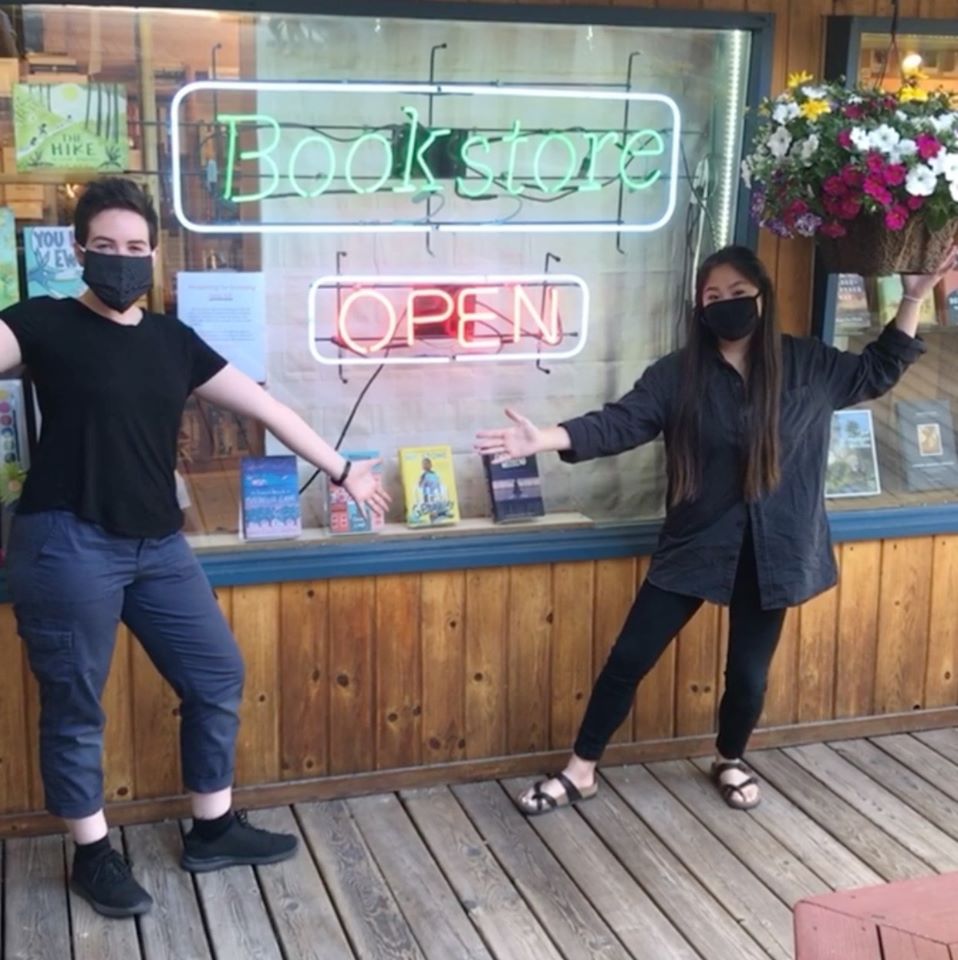 |
|
| Valley Bookstore, Jackson, Wyo. | |
In a Bookseller column headlined "Serendipity will keep bookshops alive," Anne Welsh wrote: "With some bookshops set to reopen in a couple of weeks, it's a good time to think about some of the lockdown actions that have kept shops afloat--and why they work on buyers. At their best, bookshops are both scientific and magic.... In both libraries and bookshops, the holy grail of online discovery is not search and retrieval of items the seeker already knows, but serendipity--a word itself invented by incurable bibliophile Horace Walpole, based, he said, on a tale called The Three Princes of Serendip--'as their highnesses travelled, they were always making discoveries, by accidents and sagacity, of things which they were not in quest of.' "
Welsh noted that in a physical bookshop, classic handselling techniques move the buyer "from passively encountering a new publication by showing us new things, chatting to us, and also having us speak as we form connections in our minds. It's those connections that lead to desire for the new book, seeing it as a lucky find. It's luck based on the customer's open mind and the bookseller's knowledge of us."
She added it was no coincidence bookshops that were "quick to dive into trying out new things online in the last few weeks had confidence in knowing their regulars and what they would be missing. 'Success' for most didn't just come from tooling up online--learning to Zoom for events (without leaving themselves open to hacking). It came from the sense of community they had built up--sometimes quickly, and sometimes over a period of decades."
In a departure from normal procedures, OED has responded to the Covid-19 lexical revolution by updating its coverage more frequently, outside of the usual quarterly publication cycle, noting that "these are extraordinary times, and OED lexicographers, who like many others are all working from home (WFH, first attested as a noun in 1995 and as a verb in 2001), are tracking the development of the language of the pandemic and offering a linguistic and historical context to their usage."
One word, then another, then another. That's how I'm finding my way through this not yet new-normal Covid-19 world.